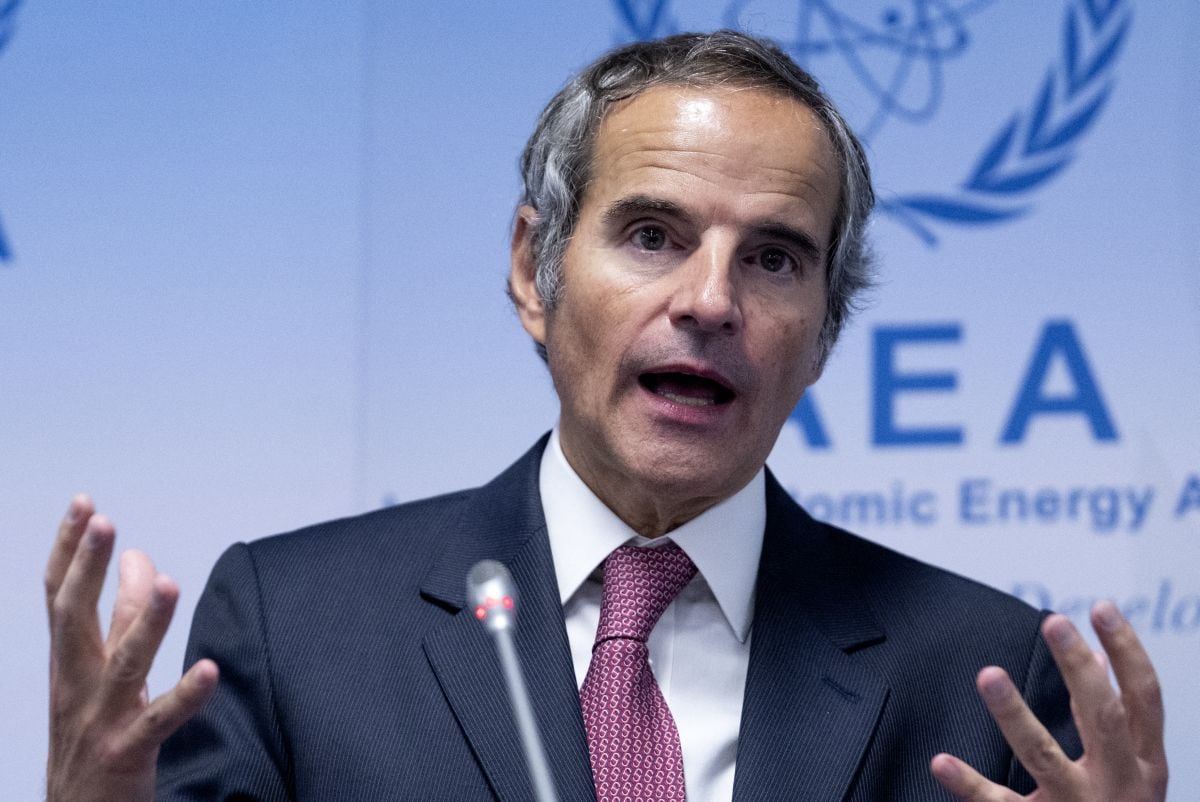
Presented by some as a shortcut to the apocalypse and embraced by others as a solution to obtain cheap energy with hardly any CO2, the director of the International Atomic Energy Agency (IAEA) remember that at the COP28 climate conference it was agreed “speed up” the deployment of the nuclear energy.
“The challenge we have is to decarbonize, not denuclearize”says Grossi (Buenos Aires, 1961) in a talk with EFE and other media, on the eve of the IAEA and the Government of Belgium sponsoring the Nuclear Energy Summit in Brussels, in which some 35 countries will participate.
The Argentine diplomat emphasizes that “Holding such a summit is in itself important” and not only for “celebrate nuclear energy”, but also to try to solve some problems, essentially financing, that those who have nuclear plants, those who intend to expand their atomic park or those who want access to that technology encounter.
Grossi regrets that despite the potential of nuclear fission to reduce CO2 emissions released by electricity generation through fossil fuels, nuclear “does not have the same level of financial incentives and support as other energy sources” and even “it has been outlawed in many cases.”
Although renewables are growing at high speed, more than 60% of global electricity is still produced with fossil fuels (a third of the total with coal and another with gas and oil), while nuclear power is around 10%. The hydroelectric plant completes the graph (fifteen%) and the rest of renewables (fifteen%).
Not including atomic energy in decarbonization plans is “completely out of fashion,” continues Grossi, always with a soft voice and a smiling expression.
And he argues this taking as a reference the UN COP28 climate summit held last November in Dubai, the conclusions of which advocated “accelerate nuclear, not tolerate or live with it”says.
nuclear Europe
In the European Union, the nuclear debate divides member states. One group, including Germany, Spain, Austria and Luxembourg, is clearly against its development, while another defends its potential, such as France, Finland, Hungary and Romania.
“Today, being an environmentalist is being nuclear,” adds the head of the United Nations agency for atomic energy, who clarifies that his function is only “to provide information” because “for a long time there has been a narrative that does not correspond to reality” who described nuclear power as “very bad, very dangerous”.
The proliferation of atomic weapons or the possibility of a nuclear accident linked to a war conflict also generates uncertainty, such as the great objections that the Ukrainian power plant in Zaporizhia has raised since the invasion launched by Russia.
“The problem is the war, not Zaporizhzhia or any other nuclear power plant. “Any infrastructure can be the target of an attack, like the Malaysian plane,” Grossi argues in reference to what is known as Malaysia Airlines Flight 17, shot down by a Russian missile in 2014 within the framework of the Donbass (Ukraine) war.
Another recurring criticism is that some planned nuclear plants accumulate significant cost overruns and delays, an extreme that the head of the IAEA recognizes, but which he counters by saying that others manage to be operational in “about 5 years or even less.”
Existing plants can also be expanded, which has been considered “the cheapest and most effective way” to limit CO2 emissions linked to electricity generation, he says.
“For example, in Spain, when you have reactors that give you 20 or 30% of electricity (…), expanding is the easiest”he reasons.
In any case, Grossi does not doubt that nuclear energy will grow, at least in megawatts generated.
“I see an upward trend, it is very clear (…). There will be an increase, yes, but perhaps not to the level that is needed,” says the diplomat, who specifies that growth is assured in net terms “But we will have to see in percentage terms, even if you add the modular reactors.”
The diplomat remembers that it is not just about reaching decarbonization by mid-century, but about continuing to feed a low-CO2 production system.
“You have to get decarbonized and then stay decarbonized”summarizes Grossi.
It may interest you
Source: Gestion
Ricardo is a renowned author and journalist, known for his exceptional writing on top-news stories. He currently works as a writer at the 247 News Agency, where he is known for his ability to deliver breaking news and insightful analysis on the most pressing issues of the day.











